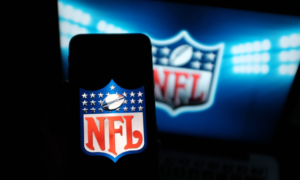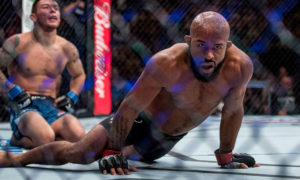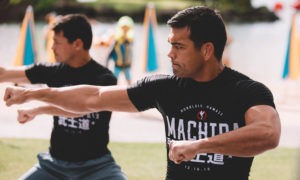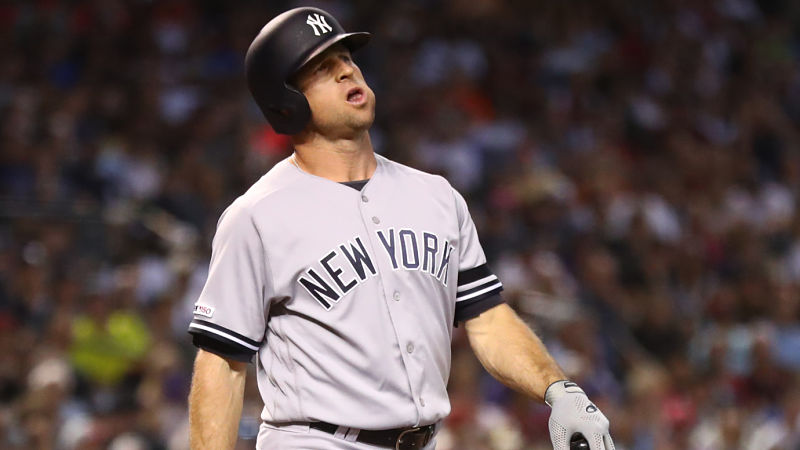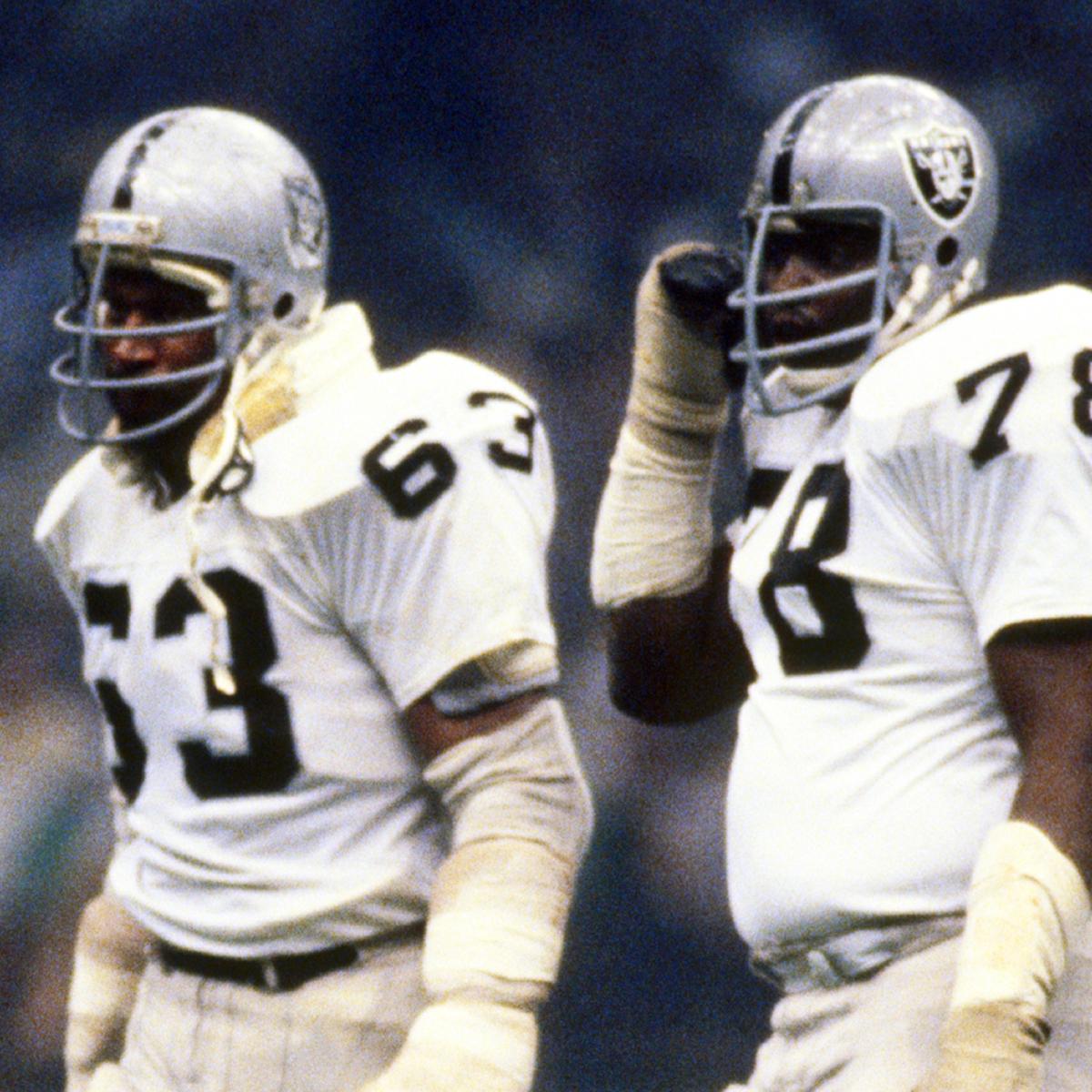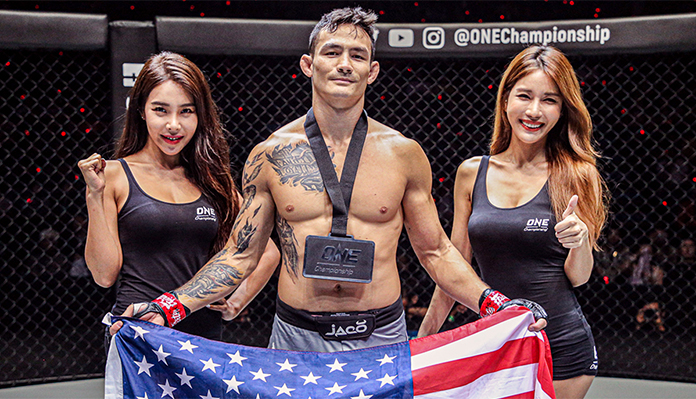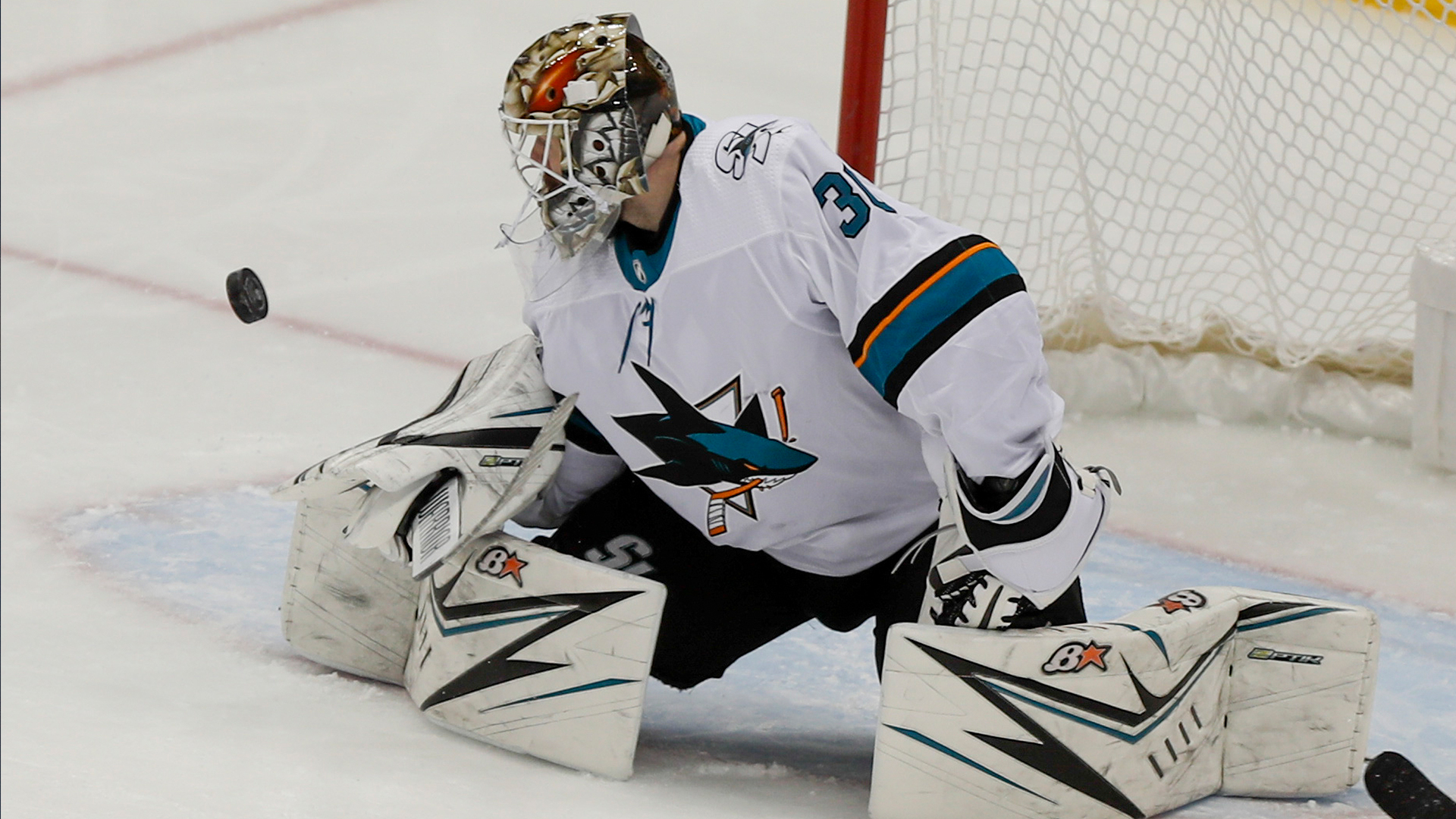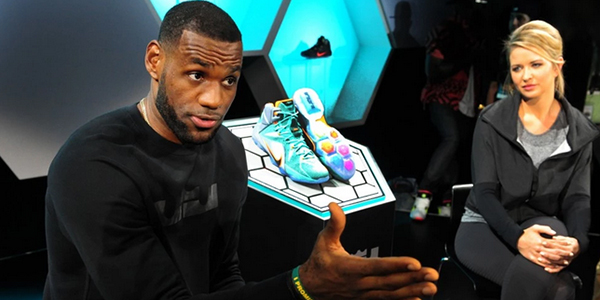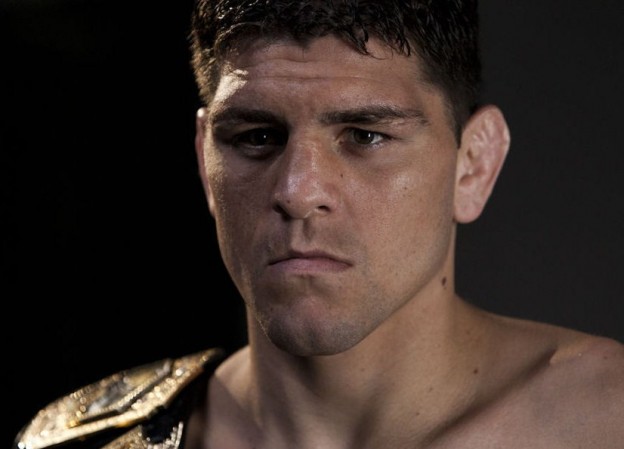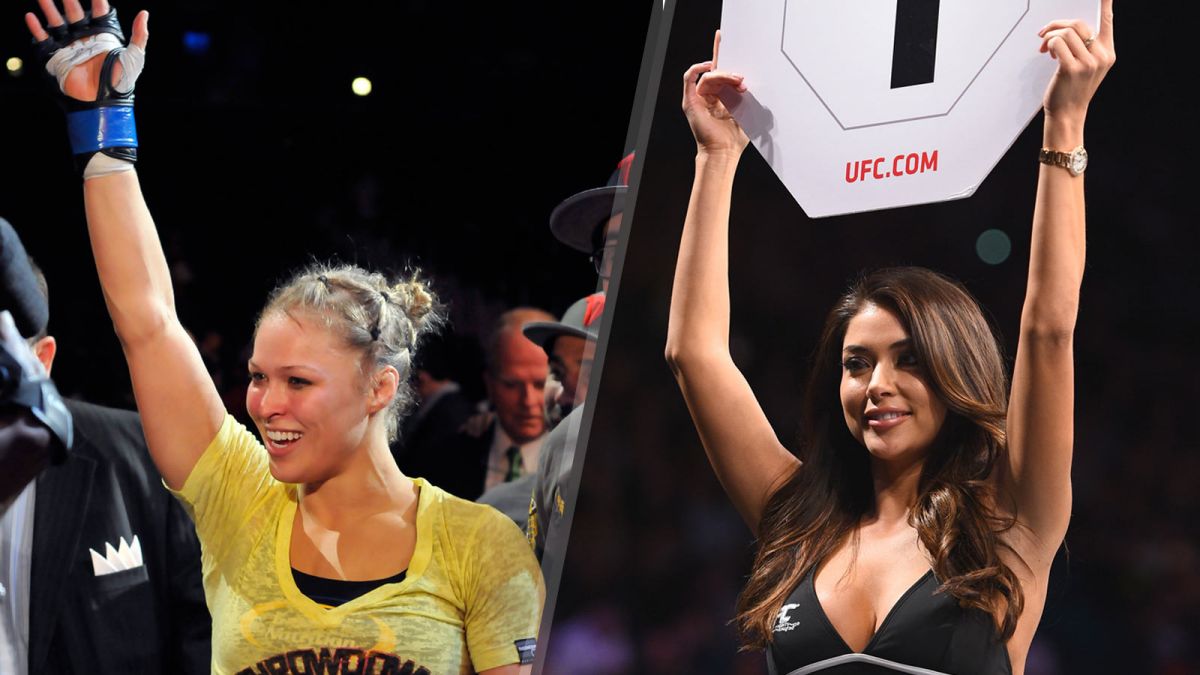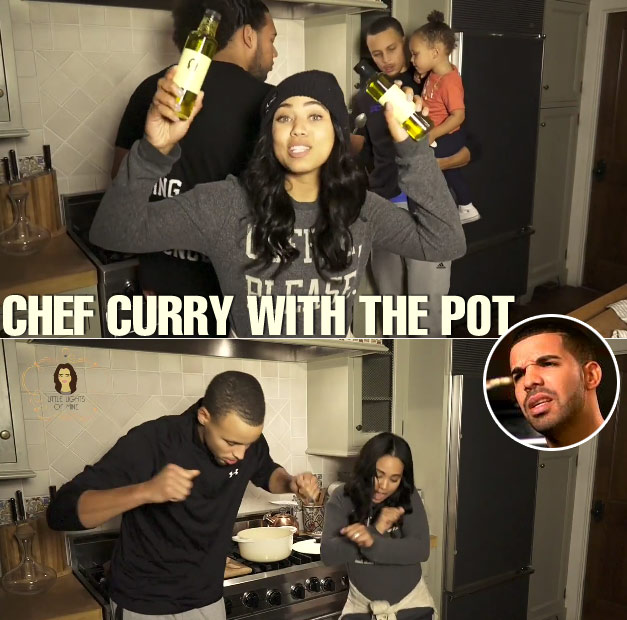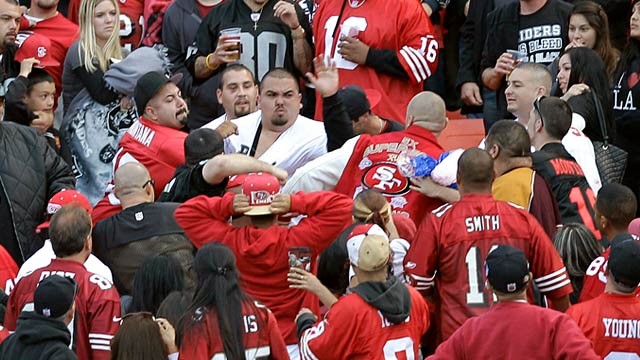William & Mary Tribe big man Nathan Knight spoke to us about growing up in Syracuse, his love for reading and his computer sciences skills.
Knight, 23, won Colonial Athletic Conference Player of the Year and CAA Defensive Player of the Year in 2020. He also won the Lou Henson Award for the most outstanding mid-major college basketball player. The 6-foot-10 prospect also mentioned an interest in coaching when his playing career is over.
Please note that this transcription was very minorly edited for clarity.
How have you been doing since the season ended?
Nathan Knight: I finished my undergraduate degree. If I’m not training, I’m reading, I’m playing video games, I’m on the phone with my parents. I just finished reading a book about computer programming. I’m actually reading a book right now that I’ve read in the past but really enjoyed and it’s called Chop Wood, Carry Water by Joshua Medcalf. It’s a really good book. It’s my third time going through it. It’s a short read but it’s dense. During the stay-at-home orders and with the immense amount of free time that I’ve had, I’ve been reading so much. I’ll read the Bible for a couple minutes before I go to bed. I loved reading John Steinbeck. I read a lot of sports novels. I have read some science fiction, but I like to read things that are applicable.
Can you tell more about what your degree was in?
NK: My degree was in Business Analytics, which is why I was reading so much about coding language. It was more of a textbook. I read it so I could have success in my classes. My degree had an emphasis in data science. I’ve been coding for about two years now. I know a bit about RStudio, VBA, SQL, Python, Java. I’ve worked with those in some capacity over the past couple years. I’ve done some independent research and applied it to the game of basketball. Analytics in the sport are very big now. I’ve tried to learn and understand the basketball analytics side: what numbers go into it? What inputs go into it? What equations are being used? I’ve tried to build my own model where I could get different information from different statistical locations and pretty much have my program give me the analytics.
You’re already qualified for some positions in sports media, too. What did your model tell you?
NK: It was basic stuff. It wasn’t anything I was looking to go somewhere with, it was just something I wanted to do to keep myself sharp. For this, I used VBA. You can import a file and so I looked at rudimentary stats from past seasons. I did William & Mary and other programs as well. I got very specific. I looked at numbers for Daniel Dixon, who was one of my teammates from freshman year. I did stuff for Omar Prewitt. I looked at Marcus Thornton because he was probably one of the greatest players to ever play at William & Mary.
This is amazing. What, then, did the model tell you about yourself? Do you look at other advanced statistics for yourself?
NK: It said I was pretty efficient. I have efficiency in conjunction with versatility. I try to be as amorphous on the court as possible. I try to do a bunch of different things. But I try not to look too much into myself for statistics.
What is the biggest thing you have learned about yourself while going through the pre-draft process during a pandemic?
NK: The biggest thing is how to be adaptable, really. We’re all going through it. Pandemics build character, for a lack of better words. It’s just a lot of stuff that no one is really used to. We have to be thankful for the things we do have. Nowadays, people like to focus on the things we cannot do. But I’m trying to focus on the things that I’m able to do, which is: get on the phone with my parents, spend time expanding myself as a person with reading, I’ve been fortunate enough to be able to train.
During a draft process as uncertain as this one, I think seniors will have an advantage because there is more of a body of work to pull from and so teams will feel like they know what they are getting. But I also feel like those who do well in the interview process will rise as well. What have you told teams about yourself?
NK: The biggest thing I try to do is to be transparent. If somebody wanted to, this is not what I do, but you can put on any face you want to and make anybody see you any way you want. But the biggest thing I try to do is be transparent. Because they’re going to know who you are. They know who you are. NBA teams do immense amounts of research and they’re interviewing these people because they’re investing a lot of resources into you. The biggest thing I try to emulate in this interview process is just transparency. I’m just honest and I’m just being me. I’m letting everything else take care of itself. If I’m not picked because my personality is not something somebody was hoping for, I can’t completely control that. What I don’t want to do is lie about who I am, they do pick me up, things don’t work because they expected me to do one thing and I do the other.
What do you think NBA teams are going to get out of their investment in you?

NK: They’re going to get a hard worker. They’re going to get someone who, I know this sounds cliché, loves the games of basketball. They’ll get someone who is willing to do whatever it takes to help the organization, and that means a lot of things – not just on the court but off the court as well. They’re going to get a contributor. That’s the biggest thing that hinders people when it comes to getting to the next level. Everyone wants to be the guy. I’m not to worried about that kind of stuff. I’m worried about coming in and helping, being a giver and not a taker.
You were one of the best defensive rebounders in the country. How are you able to grab a board and then push the break in transition?

NK: That is something that I’ve naturally progressed at because I’ve always liked to push the pace in transition. Those are some of the easiest ways to get baskets. But defensive rebounding comes with size. I’m fortunate enough to be 6-foot-9, 6-foot-10. I can’t really describe it. But I just get myself in the correct positions and then with the help of my teammates, I’m comfortable knowing that they’ll run with me.
You are incredibly lengthy, bragging a plus-7-foot wingspan. How are you able to use that to your advantage as a defender?
NK: The biggest way my length has helped me has not only been on rebounding but also to pester on the defensive end. As much as any player would like to be in the perfect defensive position at all times, it usually does not happen like that. But with my wingspan, I’m able to bother some shots that I wouldn’t have been able to bother if I had a wingspan equivalent to my height.
You ranked Top 10 among all college basketball players in fouls drawn per 40 minutes. What are some ways that you’re able to get to the line so often and increase your free-throw rate?
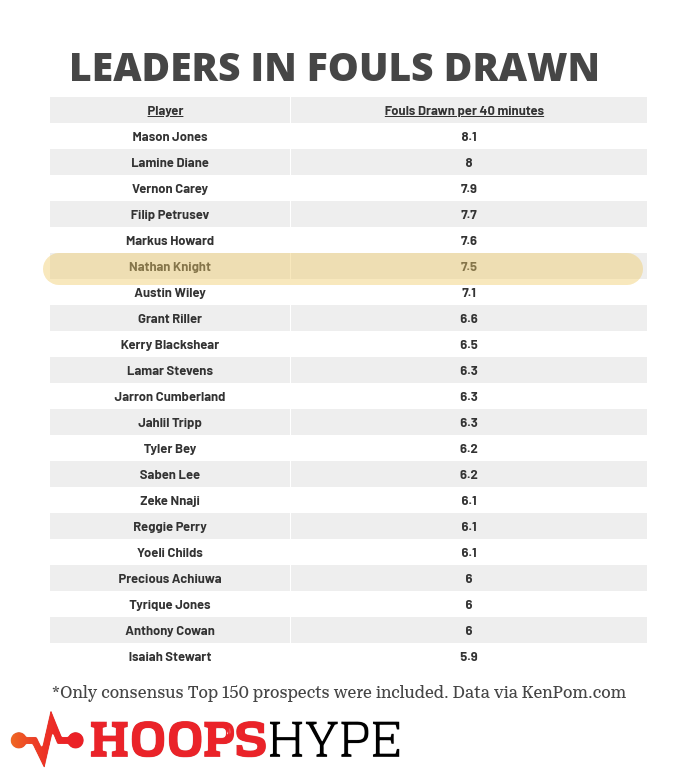
NK: I find ways to get to the basket and from there it’s just shot fakes, creating angles. At the very basis of basketball, the easiest way to draw a foul is to just get yourself in an advantageous position and make the defense make a choice. Are they going to let you score or are they going to try and get you out of that position? But they are at a disadvantage at that point and they are going to have to foul you.
Playing for William & Mary, you had an incredibly high usage rate for three years in a row. How are you going to be able to play off the ball and be effective with a lower usage rate?
NK: It definitely will change. As much as I would like to have the same usage in the NBA, that is earned. The biggest scope I like to have on the game of basketball is what can I do to help win games? That is a very broad way to look at it but it’s something that always sticks with me and helps me keep my scope in a positive mindset. I’m preparing myself for the lower usage that will naturally come with playing at that next level. I’ll work in spot-ups, drifts, stuff like that. I’ll incorporate my versatility with whatever usage is foreseeable from here.
If you were eventually allotted a higher usage rate, how would that look at the next level?
NK: One thing that I’ve prided myself on through my four years of college is the idea of learning and improving. What comes with that is expansion. Whether it is during the season or during the offseason, I’m always finding a few things I can add to my game that will make me that much better. If I continue to do that, if I continue to learn and continue to grow as a player and as a person in the right system and the right situation, I know I can be successful as a high usage guy.
You have definitely expanded your game beyond the arc. Both your attempts and your connections from three-point range increased by 300 percent year-over-year from junior year to senior year. Meanwhile, your 3-point percentage still got better. How do you see your jump shot continuing to evolve over time?
NK: That is something I’ve always been able to do, something I’ve always been comfortable doing. Basketball is a very imperfect game. The ball usually bounces not in your favor more often than it does. The biggest thing I can do is rep it out and continue to try to be as efficient as possible. Hopefully, with some luck on my side, I’ll grow as a shooter.
If you do become more of a shooter, how will that help your teammates and spread the floor? I love how most of your shots are either at the rim or beyond the arc. That shows you have been studying the shift in the modern NBA.
NK: The simplest way I can answer that is that it will space out the defense and create more advantageous positions for not only me but for my teammates as well. If defenses can just sit where they want to, it is hard to score. But if you take them out of their position, it makes it a lot easier to play offense.
Whether it was through your studies or otherwise, what are some of the biggest lessons you learned in college?
NK: As far as my mental health and my awareness, the biggest thing that I’ve learned through my time in college that I’ve been able to apply onto the court has been the “next play” mentality. Life goes on. I don’t want to get too high and I don’t want to get too low. Going out and having an amazing game feels great but you still have to go into work tomorrow, put your hard hat on and get to work. I don’t want to get too low on myself, either. That’s on the court and in life as well.
When it comes to your accomplishments so far, what has made you most proud so far?
NK: I’m most proud of the relationships I’ve been able to build through the sport. All four years in college, every person I’ve played with has become a good friend of mine. Basketball is one of the few sports where you can do that because you spend so much time with one another. College athletics is one of the few places where you can go out and build those relationships that quickly. The individual accolades speak for themselves but those are just products of the relations I’ve been able to build. My teammates had faith in me and if they hadn’t, we wouldn’t have won those games and I wouldn’t have gotten the ball in certain situations.
Speaking of those accomplishments include winning Colonial Athletic Association (CAA) Conference Player of the Year as well as CAA Defensive Player of the Year and Mid-Major Player of the Year. If you had to say, what do those accolades mean to you?
NK: It was really humbling. I give immense thanks to my teammates. The coaching staff put a lot of faith and trust in me and I put a lot of faith and trust in them. We were able to have success as a team, which led to my individual success. The biggest thing I can take away from that is just that hard work is the simplest variable to success. If you work hard, success inevitable.
What advice would you give to someone who is about to embark in their career as a mid-major NBA prospect?
NK: I think the few pieces of advice I would give is one, don’t let anyone set a ceiling for you. You’re only as successful as you let yourself be. The biggest stigma around mid-major basketball is that it is really hard to get to the NBA if you’re from a mid-major program. It’s really hard to make any transition to play pro basketball. Don’t let that take you away from that goal at hand, which is to be the best basketball player that you can be. Be the best teammate you can be. If you take care of those things, it always works out.
How did you originally decide to attend and play basketball for William & Mary?
NK: I could go on for hours and hours about this school. When I was in boarding school and they originally offered me a scholarship, I was very fortunate to have a long list of offers. But the one thing that made me consider them in the immediate is my high school had an open gym and William & Mary brought their entire coaching staff. I’d never seen that before. That showed me they were very interested. After doing research with my mom and my inner circle, not only the basketball part but the degree that I would be able to get from there is only comparable to the Ivy League schools. That was another personal goal of mine. On top of being the best basketball player that I could be, I wanted to be the best person I could be. I wanted the enriching experience that comes with going to a great college like William & Mary. The visit really tied it all together for me. Coming down here, one, it was a change of pace from my hometown of Syracuse. It felt like home and everyone was so hospitable. The campus is absolutely beautiful. The people are awesome. I committed the next day. I was there on a Saturday and I committed on Sunday afternoon. I knew. It was a very enriching experience to go there because William & Mary is not only immense in the educational part but also in the history that they have been able to be a part of that was amazing. That’s not something that everyone has done. A weird brag that I get to have is that I went to the same college as some of our earliest presidents, which is so insane. It’s amazing to think about.
Congratulations on getting a degree from such an amazing institution. How important was it for you to finish up what you started?
NK: It meant everything to me to go back for my fourth year and get my degree. That was not only one of the goals I had for myself but that also one of the biggest that my mom wanted, too. She wanted me to get my college because that’s one of the things where no matter what happens to you, no one can take that from you. No matter what happens to you, no one can say that you didn’t do it. It meant so much to my mom and my mom means so much to me. It was not only personal for me, but it made my mother proud. I had to do it.
What are some of your favorite reflections when you look back at your experience in college?
NK: Some of the memories I was able to build with my teammates and my friends on campus, the friendships that I was able to build. Everything was a learning experience. If I were to see myself four years ago, I don’t think I’d be able to recognize that person. I feel like I’ve changed that much. When I first got to college, I hated reading. It was one of my least favorite things to do. Now, I find myself doing it all of the time. I was an extrovert for the majority of my college career and now I tend to be more introverted. It was like a 180-degree spin for some of the things that I do now. It’s all thanks to the experiences in the time I spent here at the college. This school has done so much for me not only from a career standpoint from a personal learning aspect. I’ve just learned a lot about myself as a person, I’ve learned a lot about what it takes to be successful and good in nature. Those are some of the most invaluable things that you can learn. It makes me look back to my time as a child. When you’re a child, you want everything. You want the most out of growing up. I feel like, from a tangible standpoint, I was never fed from a silver spoon. But it made me appreciate my childhood because some of the lessons I was able to learn as a child and some of the things I endured were a product of my environment. Without them, I would not have been able to get through college. I wouldn’t have been able to be as successful as I was. My team here helped me not be ashamed of where I am from.
Would you mind telling me a little bit more about your childhood?
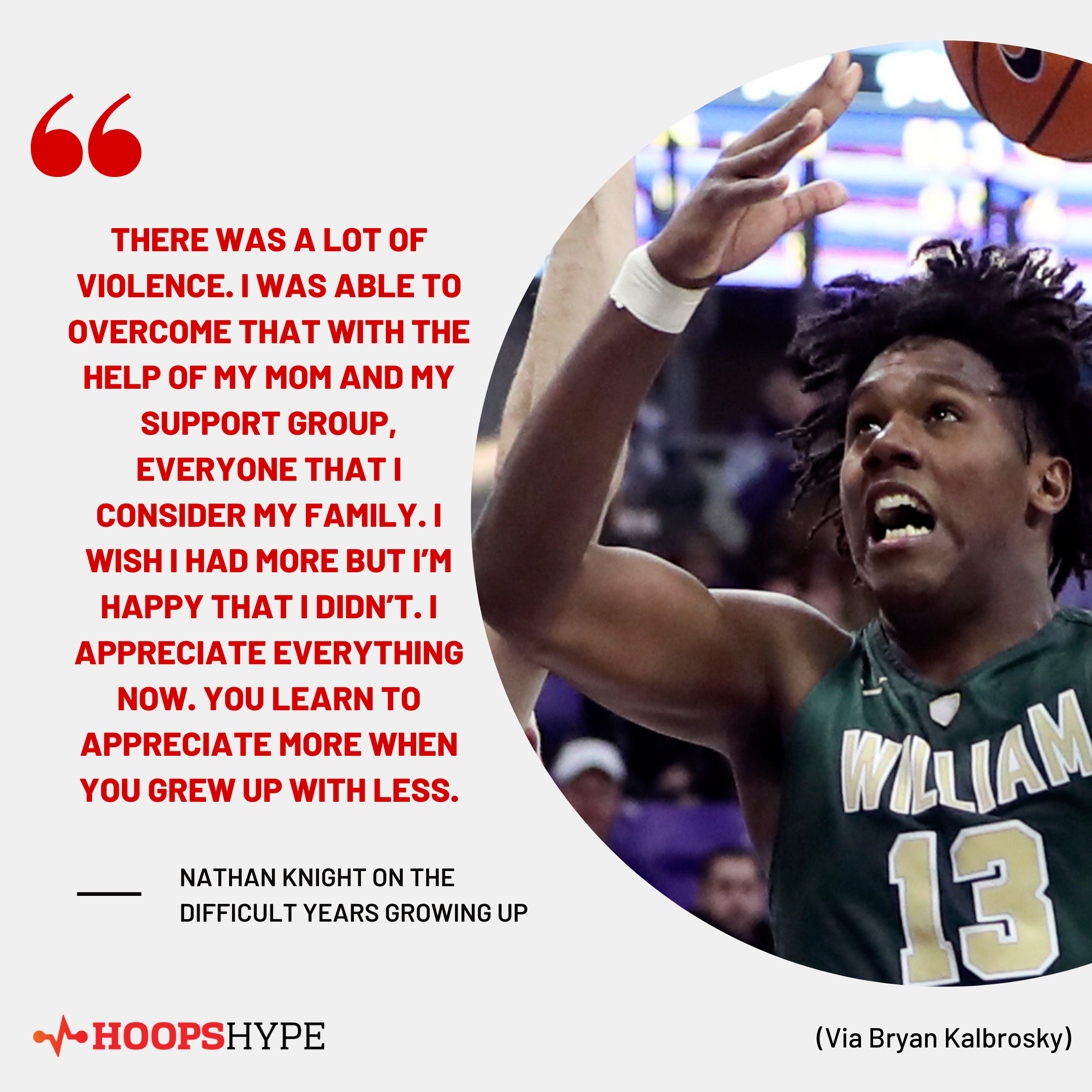
NK: I was never fed from a silver spoon. I grew up in a single-parent household and my mom was at work all of the time. My older sister was our mom when my mom was at work until my older sister passed away in 2008. Syracuse is riddled with violence and it is not a good school system. If you want to talk about systemic oppression, all of the restrictions that come with being from a crime-riddled, very culturally mundane environment, Syracuse would be the epitome. There was a lot of violence. I was able to overcome that with the help of my mom and my support group, everyone that I consider my family. I wish I had more but I’m happy that I didn’t. I appreciate everything now. You learn to appreciate more when you grew up with less.
Definitely, man. It’s an inspirational journey you’ve had. Also, I know you played baseball and football as well. What drew you to basketball?
NK: It felt like a switch. Growing up, I remember it so perfectly. My freshman year of high school, I had played basketball but during winters I was in the house all of the time. I walked through the gym and I see the guy who ended up being my skills trainer and he was working someone out and I thought that it looked amazing. It looked like so much fun. Ever since then, I’ve always to do nothing but just play basketball. I couldn’t tell you what happened to me that day. But that and maybe getting the wind knocked out of me a few times at football practice. I was like: I’m done with football.
That is a common story. Football is such a violent game. You were a southpaw pitcher, yeah? If you’re 6-foot-10, were like MLB Hall of Famer Randy Johnson out there?
NK: I was a pitcher. I wasn’t elite of the elite, crème de la crème. I could get the ball in the strike zone. But I was on the shorter side of pitchers during my high school. I didn’t hit 6-foot until my sophomore year. I went into my freshman year about 5-foot-9. I grew to about 6-foot-3 or 6-foot-4 during my sophomore year. The growth just kept coming.
Does that mean you were a guard growing up? Is that how you developed your on-ball skills? Last season, you were 6-for-7 (85.6 percent) finishing as the ball-handler in transition.
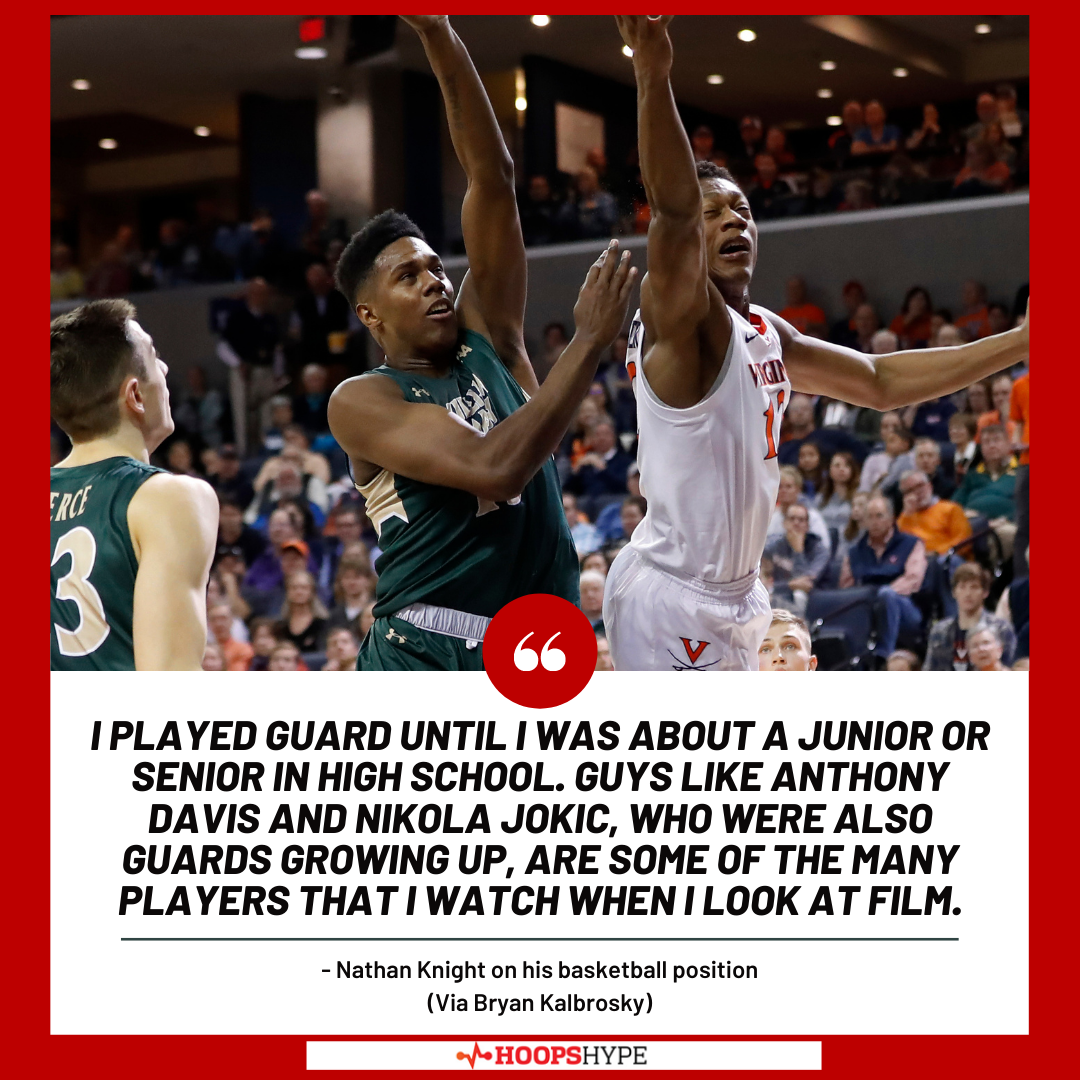
NK: Yeah, I played guard until I was about a junior or senior in high school. Guys like Anthony Davis and Nikola Jokic, who were also guards growing up, are some of the many players that I watch when I look at film. I try to look at them when I want to find things that I can add to my game. Those are guys that you can grow to appreciate who you want to see yourself playing like.
Are there any other players that come to mind for you that may fit into that category?
NK: My list is rich. We obviously have to put LeBron James in there. We love LeBron. The things that he can do at his size are absolutely incredible. Pascal Siakam, Paul George, Myles Turner, Julius Randle, Karl-Anthony Towns, DeMarcus Cousins. The list goes on and on. I have a lot of guards that I love to watch, too. I love James Harden. We appreciate a lefty. I also love Thaddeus Young, same reason. I played against Luke Kennard my freshman year. I liked the way he played.
What are some goals you have for yourself? First, we can start on the court. Then, you can answer off the court.
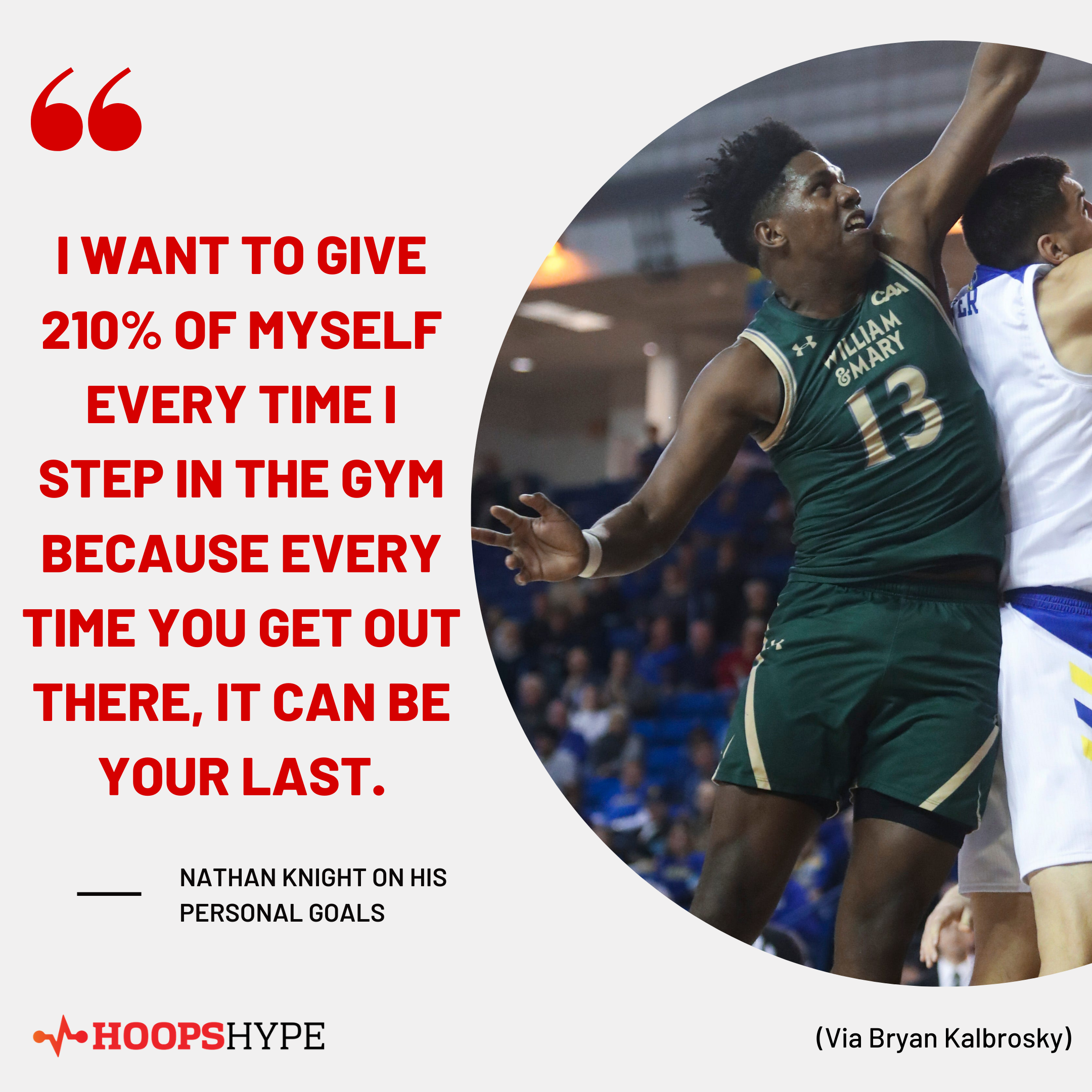
NK: One of the goals I have for myself is to be the best I can be, whatever that means. I want to give 210 percent of myself every time I step in the gym because every time you get out there, it can be your last. I don’t want to take anything for granted. I want to play professional basketball. I want to play in the NBA. That is one of my dreams. It’s been a dream of mine since I could walk. But no team is going to give you anything. You have to go out and earn it. Then off the court, I want to help the people who helped me growing up. My mother, obviously, I want to give her the world. That’s going to be something that I’m going to try to do as much as possible. The city of Syracuse, as much as it has taken away from my family, they’ve taught me a lot of valuable lessons. My sister passed away, my late grandmother passed away. The city has not been kind to my family but it has taught me a lot of valuable life lessons that I wouldn’t have learned anywhere else. I want to make that city better. I want to give kids like me an opportunity to achieve everything. I also want to be a father. That’s one of the greatest gifts that God gives a man – a little “them” that they can teach to be a person. I want to be a provider. I want to be a family man. My biological father wasn’t around so I want to be the best father that I can be as well.
Could you see yourself coaching or being in a front office?
NK: Yes, definitely. I want to coach. If I got to pick my profession after basketball, if it wasn’t something in analytics, it would probably be to coach somewhere. If I had my choice, I’d want to be a college coach. At what college, I couldn’t tell you. I love William & Mary. I’d love to come back and coach there. I enjoy everything about the game of basketball so being able to teach that would be amazing. But being a coach is a lot more than just teaching the game. My coaches past and present have taught my life lessons that I’ll never forget. I just want to do that for the next generation, as well.
Is there anything else you think that would be good to add for a story like this one that we have not yet had a chance to discuss?
NK: I’m a nicer guy than I appear in photos of me on the internet. I look like a very intimidating person. I’m a very likable person, I promise.
——————-

